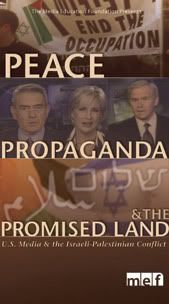
Muzzlewatch, the antipropaganda arm of Jewish Voice for Peace, is forever on the lookout for attempts to muzzle debate about the Israel-Palestinian conflict, especially, the persistence of right wing or blind Zionist supporters of Israel in claiming that criticism of Israel is tantamount to anti-Semitism. This episode comes in the wake of the growing boycott movement in Britain, with the University and Colleges Union (UCU) recently voting to join the boycott, and the UK’s largest labor union to debate joining the boycott of Israel next month.
This instance of anti-Semitic accusation, however, provides some insight into the nature of the accusers, in this case, the physicist and Nobel laureate, Stephen Weinberg, who demonstrated that behind the conflation of criticism of Israel and anti-Semitism, there is often a converse if latent bigotry against Palestinians. Call it anti-Arab or anti-Islamic prejudice or just limit it to Palestinians. Either way, it demonstrates an attitude toward Palestinians commensurate with racism. How could anyone support “ethnic cleansing, `barbaric colonisation’ and apartheid,” to quote the UCU, except to believe that the victims are of a lesser kind, a primitive people undeserving of human rights.
The Muzzlewatch article is entitled, Self-muzzling and anti-Semitism.
Robert Jensen is a journalism professor at the University of Texas at Austin and a member of the board of the Third Coast Activist Resource Center. He is the author of The Heart of Whiteness: Race, Racism, and White Privilege and Citizens of the Empire: The Struggle to Claim Our Humanity. He recently wrote about his own experience of self-censorship in regard to the physics Nobel Laureate Steven Weinberg. Weinberg, in addition to his unambiguous accomplishments in physics has written and talked about (with uneven results) other issues such as the differences between science and non-science and the Israel/Palestine conflict. Recently Weinberg wrote of the newly instituted British Academic Boycott against Israel.
I know that some will say that these boycotts are directed only against Israel, rather than generally against Jews…..But given the history of the attacks on Israel and the oppressiveness and aggressiveness of other countries in the Middle East and elsewhere, boycotting Israel indicated a moral blindness for which it is hard to find any explanation other than anti-Semitism.
Weinberg’s concern for anti-Semitism apparently doesn’t extend to other kinds of bigotry, for example, his own anti-Palestinian bigotry. At an event in which Robert Jensen invited Weinberg to speak (at Jensen’s church which I assume to be Presbyterian) about science and religion Weinberg took the opportunity to attack the Presbyterian Church for past criticism of Israeli policy. When Jensen discussed this issue at the end of the talk Weinberg’s parting reply was
Don’t romanticize Palestinians just because they are primitive.
Interestingly, until Weinberg’s remarks about the British Academic Boycott, Jensen had kept this disturbing interchange to himself.
When I read in the British press that Weinberg was lecturing Brits about morality and prejudice, my mind went back not only to his comment, but to my decision for nearly nine months to not speak about his comment. Why had I not written about this immediately, contrasting his moral critique of the Presbyterian Church’s policy with his own bigoted comment? Without recognizing it, had I internalized a fear of being targeted? I have written and spoken in favor of the application of international law and moral principle to redress Israeli crimes, but was I reluctant to tangle with a well-known figure because I didn’t want to be called anti-Semitic myself?
This is the insidious nature of the campaign to conflate legitimate criticism of Israeli policy with anti-Semitism. Of course there are anti-Semites in the world, and anti-Semites often criticize Israel. Just as obvious is that such anti-Jewish bigotry doesn’t undermine the principled critique of Israeli policy made by many decent people.
I cannot know what was, or is, in Weinberg’s heart when he called Palestinians primitive. I don’t know what he believes about Arab people more generally.
Here’s what I do know: Someone who refers to a group of people as “primitive” is on shaky ground when he makes judgments about the alleged prejudice or religious bigotry of others.
This statement was part of Jensen’s article on Weinberg that appeared earlier this month on Counterpunch. It was called, The Hollow Morality of Steven Weinberg, The Bigot and the Boycott:
When I read Steven Weinberg’s assertion that those supporting a boycott of Israel suffer from a “moral blindness” that could only be explained by anti-Semitism, I wondered how he squared that claim to the moral high ground with a comment he once made to me that smacked of anti-Palestinian bigotry.
I don’t use the term “bigotry” lightly; it’s an accurate description of a remark Weinberg made some months ago in Austin (quoted above). I had never spoken of that conversation publicly — until I read last week that he had canceled a talk at a London university, citing what he called “a widespread anti-Israel and anti-Semitic current in British opinion.
Muzzlewatch ended its report as follows:
This self-censorship due to the fear of being labeled anti-Semitic is a large scale phenomena, and unfortunately, is incredibly difficult to deal with because of some obvious issues, to name a few, 1) there is a great deal of frank anti-Jewish prejudice in the world, 2) the state of Israel, (self-avowed as the Jewish state) because of, among other things, its settler colonial occupation, is rightly open, as any state acting similarly would be, to criticism (especially a state that received huge amounts of material and political support from the US). 3) some who are critical of Israel are anti-Jewish 4) the Israeli state and “pro Israeli” forces attempt to conflate anti-Jewish sentiment with critiques of Israel in order to stifle/muzzle any criticism at all, notwithstanding the motivations of those doing the criticism. 5) there is an abiding fear, whether realistic or not, that Israel is existentially threatened from without. (questions on whether Israeli society is rotting from within can be left to another day). So, we have Robert Jensen’s dilemma, a truly principled man who is quite outspoken in his critique of US supported Israeli policies, at least temporarily cowed into not speaking out. This bodes ill for an honest and useful discussion of the Israel/Palestine conflict. We need to be able to express ourselves openly, exchange ideas and knowledge in an environment that seeks realistic solutions that will result in a just peace for everyone concerned. I am convinced that most people on either side of the green line, as well as the Jewish American population, notwithstanding differences, want the same thing.
When one hears charges of anti-Semitism from right wing supporters of Israel in reaction to criticism of Israeli policy, one must likewise suspect that they, like Stephen Weinberg, tacitly support Israel’s “ethnic cleansing, `barbaric colonisation’ and apartheid” against the Palestinian people. These actions are so vile that they can only be justified through views that Palestinians are “primitive,” of a lesser kind, and therefore not worthy of human rights, indeed, life, considering the many who have been killed during Israel’s 60 year pursuit of religious and historical preeminence, the last link of which is the annexation of Judea and Samaria (West Bank to nonIsraelis).
Stephen Weinberg apparently slipped up and spoke publicly about the roots of his blind support of Israel and his charge that criticizing Israel is anti-Semitic. Other right wing Zionist supporters of Israel, especially on political blogs, who know full well the rationale behind Israel’s military occupation/colonization of Palestine, are more careful. For them, it is almost necessary to fill in the blanks.
For sake of information, Robert Jensen, who is a Professor of Journalism at the University of Texas-Austin where Weinberg also teaches, was a participant, along with Noam Chomsky, Robert Fisk, Arik Ackerman, founder of Rabbis for Human Rights, and many others, in the widely successful documentary, Peace, Propaganda, & The Promised Land.
His peculiar insight into recent Israeli propaganda is summed up in the documentary as follows:
“In contrast to the international press, in American media, there is a reversal of cause and effect in that the occupation is framed as a response to the suicide bombings. All of the Palestinian actions are attacks and Israel actions retaliation, is meaningful. Retaliation suggests a defensive stance against violence initiated by someone else. It places a responsibility for the violence on the party provoking the retaliation. In other words, Palestinian violence like suicide bombings is seen as cause and the origin of the conflict. Since the September 11 attack on the US, Israel’s PR strategy has been to frame all Palestinian actions, violent or not, as terrorism. To the extent that they can do that they have repackaged the illegal occupation as part of the war on terrorism.”





